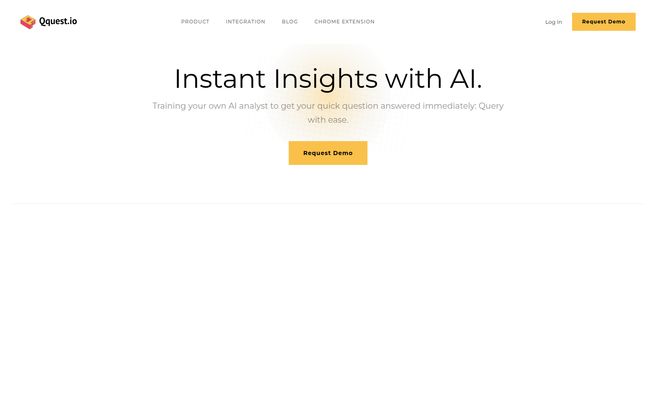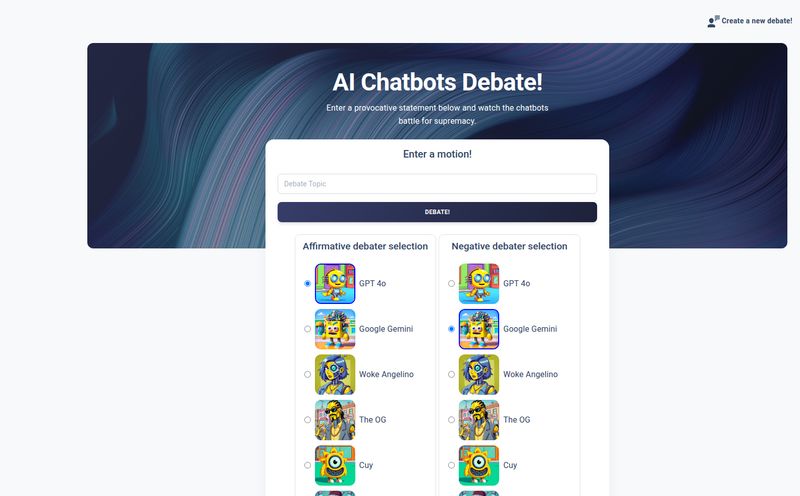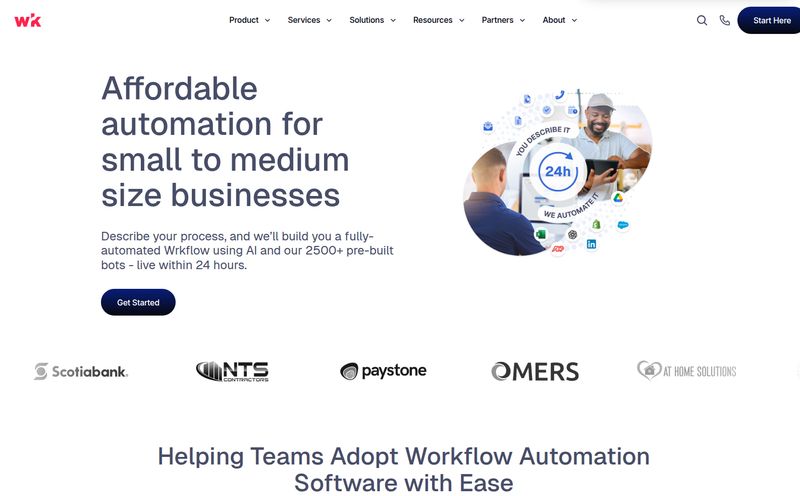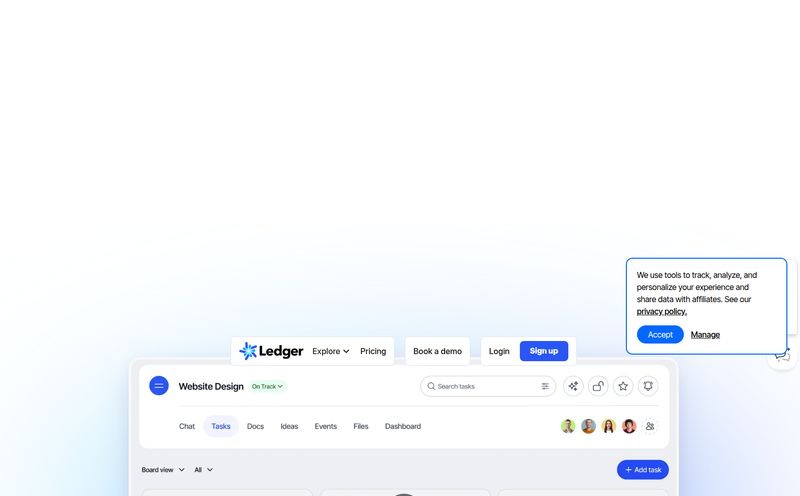You know the drill. You’ve got a brilliant campaign idea, a hunch about customer churn, or a burning question about last quarter’s numbers. The answer, you know, is lurking somewhere in the company’s data. But to get it, you have to file a ticket with the data team. And they’re swamped. As they always are. So you wait. And wait.
It’s one of the oldest and most frustrating bottlenecks in modern business. The people with the questions (marketing, sales, ops) don't speak the language of the data (SQL, Python, etc.), and the people who speak the language are buried in requests. What if you could just… ask? In plain English?
That’s the promise of a new wave of tools powered by generative AI, and one that recently caught my eye is called Qquest. Their whole pitch is about turning complex data queries into simple, conversational exchanges. It sounds good. Almost too good. As someone who’s spent years pulling traffic reports and trying to translate marketing-speak into something a database understands, I’m naturally skeptical. But I’m also intrigued.
So, What is Qquest, Exactly?
Think of it like this: Qquest aims to be the friendly, approachable translator standing between you and your company's intimidating databases. Instead of writing something like SELECT COUNT(DISTINCT user_id) FROM sales_data WHERE signup_date >= '2023-01-01' AND last_seen < '2023-02-01'; you could theoretically just ask, “Hey, how many users who signed up in January didn’t come back in February?”
It uses generative AI—the same kind of tech behind tools like ChatGPT—to understand your question, figure out how to ask the database for the answer, and then bring it back to you in a digestible format. The idea is to completely remove the coding barrier, making data analysis accessible to pretty much anyone in the organization who can type a question.

Visit Qquest
This isn't just about making things easier; it's about making things faster. The speed of business today doesn’t have time for a week-long ticket queue. When you can get answers in minutes, not days, you can make smarter decisions, pivot your strategy on a dime, and maybe, just maybe, get ahead of the competition.
The Big Dream: Data for Everyone, No SQL Required
The core value proposition here is the democratization of data. For years, we've had powerful BI tools like Tableau or Power BI, but let's be honest, they still require a fair bit of training to use effectively. They’re powerful, but they’re not exactly walk-up-and-use friendly for the average project manager. Qquest wants to change that.
Empowering Your Business Teams
For marketing, sales, and operations teams, this could be a game-changer. Imagine your marketing manager being able to instantly pull performance metrics for a specific ad campaign without leaving their workflow. Or a sales leader segmenting customers based on recent activity to create a targeted outreach list. No more watered-down questions because you're trying to simplify it for the data team. You can ask exactly what you need to know, when you need to know it. This fosters a kind of data-driven curiosity that’s often stifled by technical barriers.
What’s In It For the Data Pros?
Now, if I were a data analyst, my first thought might be, “Great, a robot is coming for my job.” But I don’t think that’s the right way to look at it. Qquest seems to be positioning itself as a way to free up data leaders, not replace them. Their site specifically mentions building your own “AI Agent.” This means data teams can train the AI on the nuances of their company’s data—what certain terms mean, how tables are structured, the specific business context.
In my experience, a huge chunk of a data analyst's time is spent on repetitive, ad-hoc requests. “Can you pull this week’s numbers?” “What was the conversion rate for this landing page?” If a tool like Qquest can handle 80% of those routine questions, it frees up the real experts to focus on the big, strategic projects: building predictive models, deep-dive analyses, and finding the insights that no one even knew to ask for.
Bridging the Great Data Divide
I’ve always felt that the gap between technical and non-technical teams is one of the biggest silent killers of productivity. It’s a culture gap as much as a skills gap. Qquest is clearly trying to build a bridge across that divide. When everyone is looking at the same data and can ask their own questions, you get better alignment. The marketing team’s definition of a “lead” finally matches the sales team’s. Operations can see the direct impact of their efficiency improvements on revenue. It creates a shared language, and that shared understanding is gold.
Okay, But Let’s Be Realistic For a Second
This all sounds fantastic, but as any seasoned pro knows, there's no magic bullet. Based on the platform's own premise and the nature of AI, there are a few potential hurdles to keep in mind.
First, there's the setup. You have to train the AI agent. This isn’t a plug-and-play solution right out of the box. You'll need to invest time upfront to teach the AI about your unique business context. The old saying “garbage in, garbage out” is doubly true for AI. The quality of your insights will directly depend on the quality of the training you provide. Second, you are placing a lot of trust in the AI's accuracy. What if it misinterprets a question? A small misunderstanding in a natural language query could lead to a wildly incorrect data pull, and if you don’t have the technical skills to double-check the source, you might make a bad decision based on faulty information. Finally, there’s the potential for platform dependency. Once your whole team gets used to querying data this way, moving off the platform could be a significant challenge.
The Million-Dollar Question: What's the Price Tag?
Ah, the part of the review everyone scrolls down to. I went looking for a pricing page on their site, and… nothing. The main call-to-action is “Request Demo.” This is pretty standard for new B2B SaaS tools, especially in the enterprise space. It usually means one of two things: they're still figuring out their pricing, or the price is highly customized based on your company's size, data volume, and specific needs.
My gut tells me this isn't going to be a cheap, per-seat monthly subscription you can just slap on a credit card. It’s likely an enterprise-level solution that requires a sales conversation. Which is fair, given the hands-on setup that seems to be required. Just don’t expect a simple pricing grid.
Final Thoughts: Is Qquest the Future?
So, is Qquest worth your time? My take is a solid yes, it's worth the demo. While I'm cautious about any tool that promises to make data “effortless,” the problem Qquest is trying to solve is very, very real. The move towards conversational, natural language interfaces for complex software is a trend I'm seeing everywhere, and it’s not going away.
This tool, and others like it, represent a fundamental shift in how we interact with information. It’s a step towards a future where data isn't a guarded fortress protected by technical wizards, but more like a public library where anyone can walk in and ask a question. There will be bumps along the way, for sure. But the direction is the right one. For any organization that feels like they’re data-rich but insight-poor, exploring a tool like Qquest isn’t just a good idea—it might be a necessity to keep up.
Frequently Asked Questions about Qquest
What exactly is Qquest?
Qquest is a software platform that uses generative AI to let you ask questions about your company's data using plain, natural language. It's designed to eliminate the need for coding skills (like SQL) to get business insights, making data analysis accessible to non-technical team members.
Who is the ideal user for Qquest?
It's built for a wide audience. Business stakeholders like marketers, sales managers, and project managers can get instant answers. At the same time, it's for data leaders who want to empower their colleagues and reduce their own workload of handling routine data requests.
Do I really need zero coding knowledge to use it?
That's the core promise. For the end-user asking questions, no coding should be required. However, the initial setup and training of the AI agent will likely require technical oversight from a data team to ensure it understands your data sources and business logic correctly.
How is this different from a BI tool like Tableau or Power BI?
While traditional BI tools are powerful for creating dashboards and deep analysis, they often have a steeper learning curve and are primarily visualization platforms. Qquest focuses on the query and answer process, using a conversational interface rather than a drag-and-drop dashboard builder. It’s more about getting quick, specific answers than building complex, ongoing reports.
Is my company's data secure with Qquest?
While I haven't done a deep-dive on their security protocols, any platform in this space must prioritize data security. This would be a critical question to ask during a demo, specifically regarding their data handling, encryption, and compliance standards like SOC 2 or GDPR.
How do I get started with Qquest?
Currently, the only way to get started is by visiting their website and using the "Request Demo" button. This will likely lead to a conversation with their sales team to discuss your needs and see if the platform is a good fit.



